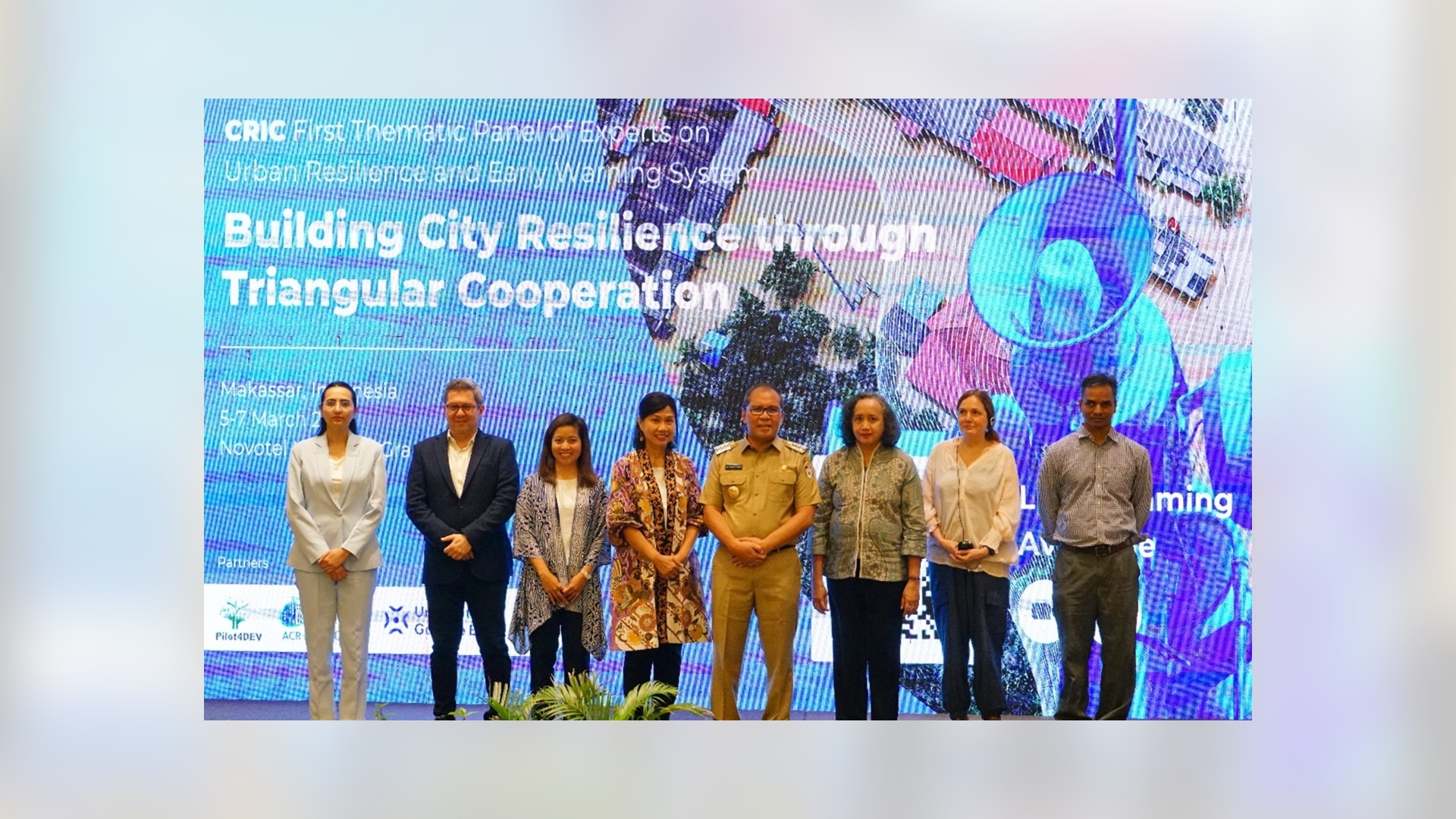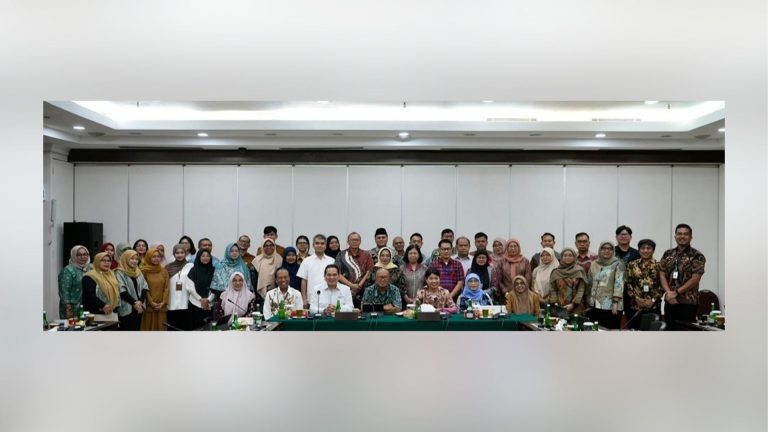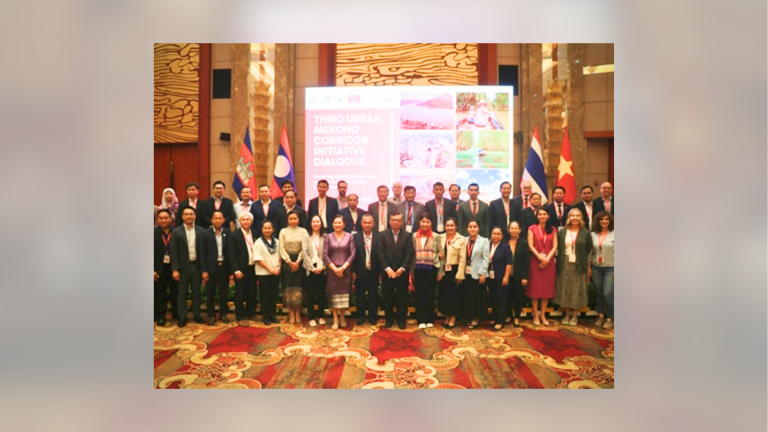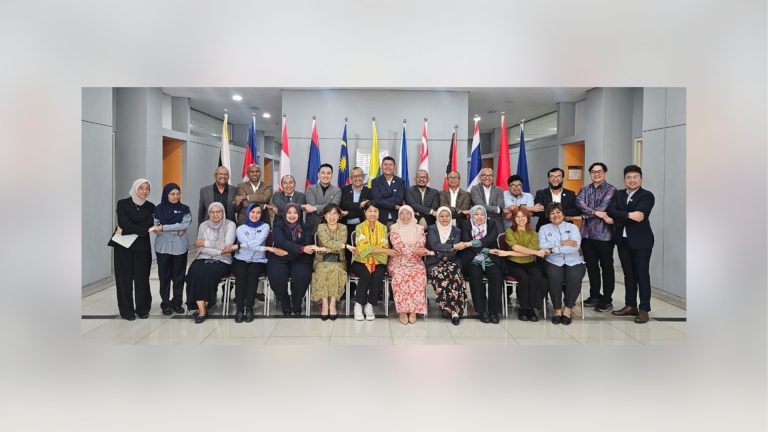March 5, 2024| UCLG ASPAC, under the Climate Resilient and Inclusive Cities (CRIC) Project recently convened a Thematic Panel of Experts on Urban Resilience and Early Warning Systems on the 5th of March in Makassar, Indonesia. It brought over 100 attendees, including local government representatives from 10 CRIC pilot cities and its stakeholders, strategic partners, and experts on early warning systems and urban resilience. The event was graced by Dr. Bernadia Irawati Tjandradewi, Secretary General of UCLG ASPAC, Mr. Thibaut Portevin, Head of Cooperation from EU Delegation to Indonesia/ASEAN in his video message, and Mayor Ir. H Mohammad Ramdan Pomanto of Makassar.
The panel highlighted the “Building City Resilience through Triangular Cooperation” theme underscoring the importance of collaboration among stakeholders in addressing climate change, inclusivity, and building resilience.
The expert panels that followed delved into analysis and recommendations on elevating the implementation of early warning systems and other aspects of urban resilience through a more holistic approach to disaster reduction. For example, Dr. Dian Afriyanie Ph.D from ITB Centre for Climate Change and Co-founder of Lokahita emphasised how we need to transition from risk-based to resilience-based adaptation. This was echoed by the Head of the LPPM Disaster Study Centre, Dr. Eng. Ilham Alimmudin, S.T., M.GIS., Ph.D. from Hasanuddin University in Makassar, further highlighting the importance of inclusive processes in building resilience, as well as adopting and social-ecological systems way of thinking.
Mr. Muhammad Fadli as Pacific Disaster Centre Liaison for AHA Centre continued by discussing strategies for mitigating disasters and enhancing resilience, especially amidst growing occurrences of hydro-meteorological disasters. Dr. Ilham Alimmudin positively agreed with Mr. Fadli’s remarks, by encouraging local governments to, should they have not, provide continuous disaster literacy campaigns. Overall, experts have emphasised the need to move beyond simply responding to disasters and focus on building resilience through preventative measures.
The panel also featured lessons learned from representatives of three CRIC pilot cities that have prioritised early warning systems: Ternate, Pangkalpinang, and Bandar Lampung. Mr. Saefullah, member of the CRIC Climate Working Group (Pokja) from Ternate city expressed Ternate’s vulnerability to multiple hazards such as volcanic eruptions and landsides, thus emphasising the importance of considering multi-faceted disasters in risk reduction.
The main challenge for Pangkalpinang, as expressed by Mr. Erika Handoko, S.T., M.Si. as Head of Government, Human Development, Economy and Infrastructure of the city’s planning agency (Bappeda) is reducing flood risk. He highlighted the need for cross-sectoral and cross-stakeholder collaboration such as financial institutions.
Meanwhile, in Bandar Lampung, Mrs. Rein Susinda Hesty, Head of the city’s Regional Development Planning, Research, and Innovation Agency (Bapperida) in Economy and Human Resources mentioned the eleven types of disasters make up its vulnerability framework, and outlined the city’s goal of lowering number of neighbourhoods with high disaster risk and explained the importance of public consultation in implementing action plans.
In the second expert panel, Dr. Pascaline Gaborit as Founder of Pilot4Dev and Prof. Youssef Diab as Director of Research in Universite Gustav Eiffel discussed how early warning systems is integral in disaster risk reduction, yet also complex in its nature when wrapped in the overarching aim of enhancing resilience. Therefore, they highlighted the need for comprehensive tools, continuous development, contingency plans, and adequate funding support. Prof. Youssef Diab mentioned another interesting insight, which was the challenge in transferring experience from developed or wealthier countries to others due to resource disparities, indicating how early warning systems should be considered as tools rather than final solutions. This would require context-specific approaches for better implementation.
Finally, the Panel of Experts ended on insightful remarks as three Indonesian cities — Samarinda, Semarang, and Makassar — highlighted the diverse challenges and also their innovative approaches in addressing climate-related disasters. For example, Samarinda is collaborating with academic institutions as mentioned by Mr. Ir. Hamzah, ST, M.T., as Disaster Analyst from the city’s Regional Board for Disaster Management (BPBD) to utilise early warning systems through gathering climate data, specifically targeting vulnerable regions identified through spatial data analysis. Mr. Anggie Ardhitiat, SH., Head of Emergency and Logistics Division of Semarang city’s BPBD mentioned how the city is addressing changing coastlines and frequent landslides, and in Makassar, Drs. A. Hendra Hakamuddin, S.STP., MPA, as Chief Executive of the city’s BPBD highlighted how disasters such as flooding prompted the city government to explore structural initiatives such as mangrove establishment and a soft-infrastructure called Lorong Wisata or Tourism Alley to enhance resilience.
Overall, the Panel of Experts provided valuable insights into the challenges and opportunities for building resilient cities in Asia-Pacific, and the CRIC project, with its focus on triangular cooperation, underscores the significance of ongoing and hopes of continuous collaboration to address long-term climate challenges.











